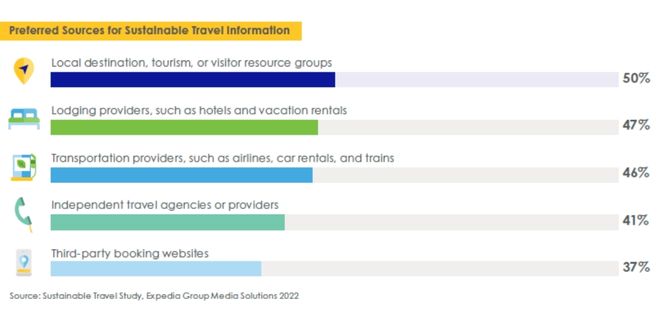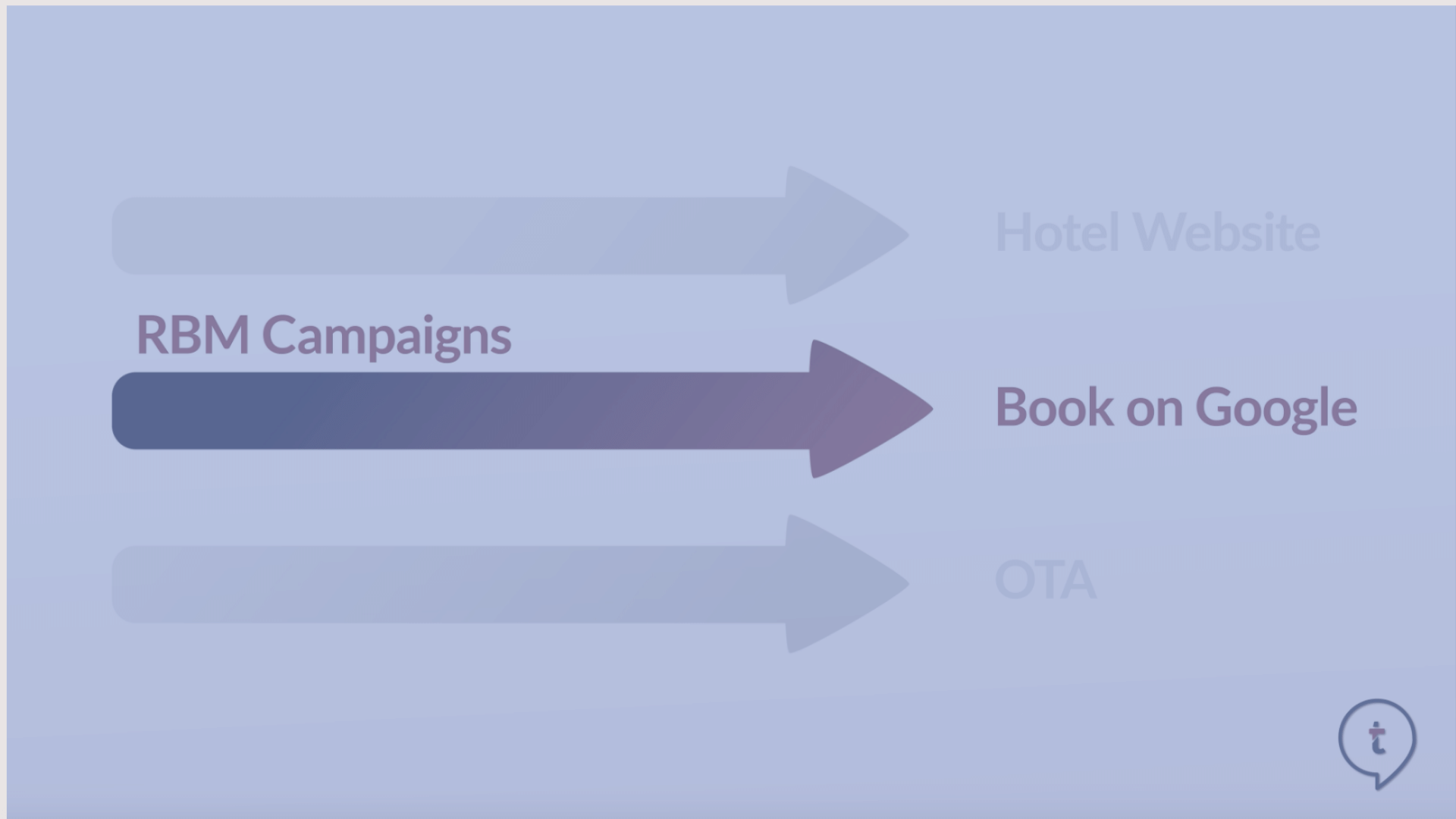The hotel industry is moving into a very dynamic and evolving future. More than a third of hotel guests are represented by next-generation travelers. These are Digital Natives who have integrated technology deep into their lives, with everything managed through the screen of their mobile devices. Hotels must start consciously rethinking and reshaping their services and products to satisfy and fulfill the expectations of Millennials, Generation Y, and the digital natives born between 1982 and 2000.
We also know this generation has a stronger desire to experience more of the local community that offers more authenticity and is environmentally conscious. Modern travelers expect the hotel industry to provide more personalized services.
As travelers become more aware of environmental issues, hotels have started implementing “greener” practices to meet guests’ expectations and show their commitment to the environment. Perhaps now is when more needs to be done and sustainability to be given even greater priority.
Not just for the benefit of the environment but also for the hotel’s bottom line and operating costs. Energy costs are soaring worldwide, impacting hotels more than ever, so looking at greener and more cost-effective ways can only be a positive step forward.
Growing Demand and Opportunity for Sustainable Tourism
Consumers worldwide are making more mindful decisions when traveling, such as opting for more eco-conscious and sustainable offerings, and more want to do so in the future. However, many feel overwhelmed by starting the process of becoming more sustainable travelers and are looking for sustainability information from trusted travel resources and providers.
Expedia Group recently did a study, Sustainable Travel: Consumer Attitudes, Values and Motivations in Making Conscientious Choices, which found that two-thirds of consumers want to see more information on sustainability from lodging and transportation providers, and half of the consumers want to know this information from destinations, tourism boards, or visitor resource groups.
Consumer attention toward sustainable tourism has also increased expectations for destinations and travel brands. Seven in ten consumers have avoided a destination or transportation option because they felt it was not truly committed to sustainable practices, illustrating the importance of authenticity and transparency around sustainability commitments and outcomes.

The study also found that half of the consumers would be willing to pay more for transportation, activities, and lodging if the options were more sustainable. We looked at Expedia Group data to see how this consumer attitude comes to life for travelers, specifically performance and review themes for hotels that have signed the UNESCO Sustainable Travel Pledge.
Looking at Q1 bookings for the nearly 4,300 hotels that have signed the pledge (as of March 16, 2022) compared to unpledged hotels, pledged hotels have a higher ADR and longer length of stay than the global average across Expedia Group points of sale. Across Q1 bookings for properties that signed the pledge, hotels were the most popular, followed by all-inclusive properties and resorts. Pledged all-inclusive properties saw the largest share increase from Q4, up nearly 5% quarter-over-quarter. Heading into 2022, pledged hotels saw stronger week-over-week demand than non-pledged hotels. Globally, pledged hotels saw an almost 25% increase in week-over-week bookings, compared to a 15% increase for non-pledged hotels.
The case for sustainability
Tourism is a carbon footprint contributor. Hotel guests choose various methods to get to their destination, including trains, planes, buses, and taxis, all creating pollution levels. Transportation alone represents almost a quarter of Europe’s greenhouse gas emissions and is the leading cause of air pollution.
In 2019 Booking.com prepared a Sustainability Travel Report, which identified that 72% of travelers believe that action is needed now and that everyone needs to make sustainable travel choices. 73% said they intended to stay in an eco-friendly or green accommodation for future stays.
It’s not all about the most cost-effective option either. A 2019 Skift report found that 53% of guests are willing to pay more for environmentally responsible providers. 76% of Millennials and Gen Z are willing to pay more for an eco-friendly stay.

Ways to be sustainable
The good news is that hotels can be more environmentally conscious in many ways, even though it might seem challenging to know where to start.
As a new generation enters the workforce, they are more environmentally aware than their predecessors. An excellent place to start is with your team members and implementing new, greener processes into your operational tasks. If included in the process, many of your team will likely have constructive ideas, suggesting ways to be more sustainable by improving the hotel's working methods.
How can technology help sustainability?
The Smart Room - Hotels with smart room technology can bring several benefits: reducing energy and water consumption, comfort, improving staff efficiency, and developing environmental awareness on both sides: guests and the hotel's operational staff. Using smart room technology, hotels can save energy while being more sustainable and providing a personalized guest experience. Technology that supports climate control and lighting, when needed, goes a long way to being more green.
Examples of ways hotels can reduce the energy and water consumption they have an impact on, directly or indirectly:
- Key cards that activate energy-using items like lights and the TV. The benefits of having such key cards are that if the guest forgets to turn the lights or TV off, they’ll automatically switch off once they’ve taken their keys to leave the room, saving considerable energy costs.
- Changing light bulbs and signs to more energy-efficient LED lighting can contribute to considerable energy savings.
- Motion sensors in public areas such as hallways and staff areas ensure lighting is only activated when needed.
- Smart climate control systems that optimize the heating, ventilation, and air conditioning systems depending on occupancy and demand are also excellent ways to reduce unnecessary energy use.
Go Paperless - Hotel operations tend to run through much paper. With today’s technology, there are plenty of ways to go digital and negate unnecessary paper waste. The hotel Property Management System (PMS) and supporting operational systems such as Housekeeping and Food & Beverage systems are an excellent place to start. Check if your technology providers can support a paperless journey; if they can’t, it might be time to review your systems. You’re probably still running legacy systems that, in their own right, are resource hungry and expensive.

Consider how much paper waste comes from printing the daily hotel reports, typically used for morning briefings and meetings before being discarded. Modern systems should offer reports that can be automatically emailed to relevant parties every morning, supported by on-demand dynamic dashboards with the most up-to-date data that can be accessed via the staff mobile device. Guest folios can be emailed automatically upon check-out time, saving the staff time to print and the paper to print it on.
Housekeeping is another high paper user with the morning shift printing out every housekeeper's room list and tasks; housekeepers then check these off manually as they process rooms. Modern housekeeping solutions can digitalize the entire task management process and automate the updating of rooms' status to the front desk. They are saving labor, time, and paper. Robots - Robots are beginning to occupy various positions, not limited to being used only for check-in to reduce customer waiting time.
The future of the hotel workforce will likely be strongly influenced by technologies such as robotics and Artificial Intelligence (AI). Robotics, with other forms of computing such as the IoT, AI, and other innovative technological solutions, will help provide hospitality services to future customers at levels we are yet to see.
The HENNA Hotel opened 2015 in Japan is one of the first hotels fully staffed by robots. They’re using Robots in departments that include the front desk, concierge, housekeeping, delivery of room service, and vacuuming the public spaces and hallways.
While robots have valid uses within the industry, they are controversial to some, and there are pros and cons to be aware of. Some believe robots can deliver greater consistency and accuracy, perhaps more so than humans, and are often faster than humans, especially in calculations. But this is still open for debate, explicitly relating to operational tasks and their ability to identify in advance when something needs attention. No Robot I know of so far can beat a human's ability to preempt a situation or a guest's needs in advance because the empathy a human has is still missing from the robot.
Conclusion
Technology is the foundation for building and identifying viable solutions to improve efficiencies, energy consumption, resources, and communication. Implementing digital technologies can be a step forward in sustainability, meeting the traveler's needs, and making a difference to the environment.
Accor properties have established a program where they ask their customers to reuse towels, with the savings passed on to fund the planting of trees. A simple action that equates to one tree planted every minute. It is a good example of how hotels can implement these programs. In Accor's case, with Planet 21, this runs across the entire Accor group and sets out mandatory benchmark actions for hotels to meet. Through this program, 1,882 Accor hotels have rolled out food waste reduction programs, 1,218 have created their own urban vegetable gardens, and 7.2 million trees have been planted.
The success of schemes like this depends on buy-in from your team and clear, actionable goals. If you set a target to reduce the energy spent on laundry by 20%, your housekeeping team needs to be advised. If they aren't, they may end up cleaning rooms and replacing towels anyway – so ensure your policies are clear internally and externally.
Sustainable practices and solutions in hotels are necessary for efficiency, saving energy by using renewable energy, reducing water consumption, saving tap water, and recycling waste. Hotels recognized as being and operating eco-friendly generate more trust, making travelers more loyal.
About the Author
André Baljeu, Founder & CEO at techtalk.travel

André’s experience derives from a career spanning 30 years across the globe, with senior IT and operational positions with leading hotel chains and technology providers. André founded techtalk.travel in 2017 to help bridge the gap between hotels and technology providers. Offering an entry point for industry newcomers and students to better understand the industry landscape by providing a neutral, thought leadership platform delivering relevant, trusted, ad-free editorial content.
Connect with André on Linkedin.
- INFOGRAPHIC | link coming soon
- PODCAST | link coming soon
- VIDEO| link coming soon
To all techtalk.travel editorials
Sources: 2022 Expedia Travel Trend Report, 2019 Booking.com Sustainability Travel Report, Skift, Accor Hotels.




 Free download
Free download

![V03: The History of Hotel & Travel Technology | [Updated] Infographic](https://techtalk.travel/storage/app/uploads/public/63f/e6f/ec8/63fe6fec80447817849943.jpg)



Create an account to access the content.
Get access to Articles, Video's, Podcasts, Think Tanks, Infographics and more.
Click “Sign In” to accept our
Terms of Service Privacy Policy